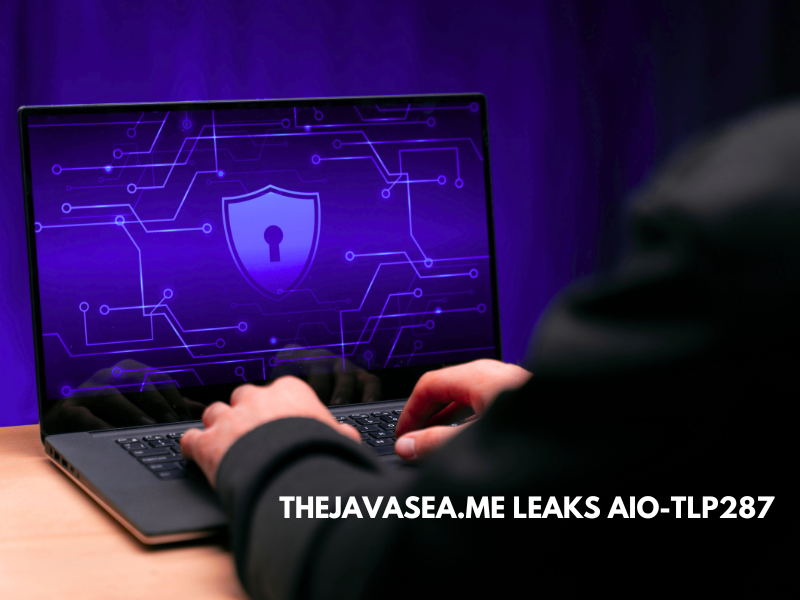The thejavasea.me leaks AIO-TLP287 has become one of the most talked-about data breaches in recent times, raising serious concerns among cybersecurity experts, organizations, and individuals alike. This leak contains a wide range of sensitive information, including usernames, passwords, corporate documents, and software tools that could be exploited by malicious actors. The scale and diversity of the leaked content have made it a critical case study for understanding digital security vulnerabilities and the importance of proactive cybersecurity measures.
A Detailed Overview of thejavasea.me and Its Role in Hosting Leaked Digital Resources That Pose Serious Security Concerns
Thejavasea.me is an online platform known for hosting and sharing a wide range of digital resources, including leaked datasets, cracked software, and automation or hacking tools. The platform attracts users seeking access to information that is often restricted or confidential, which has made it a controversial hub within the cybersecurity community. The thejavasea.me leaks AIO-TLP287 is particularly significant because it contains highly sensitive information that can be exploited for identity theft, unauthorized account access, and corporate espionage, making it a topic of concern for cybersecurity authorities worldwide.
Understanding the Scope and Contents of AIO-TLP287 and Why It Is Considered a High-Risk Data Compilation
The AIO-TLP287 is an all-in-one leak hosted on thejavasea.me, containing multiple types of sensitive and potentially dangerous information. This collection includes large databases of usernames and passwords from previous breaches, software cracks that bypass licensing restrictions, confidential corporate and government documents, and automation scripts that can be used for hacking or data scraping. The combination of these elements makes the thejavasea.me leaks AIO-TLP287 a high-risk dataset, posing serious threats to individuals and organizations whose data may be included or who interact with the leaked content.
Real-World Consequences of the thejavasea.me Leaks AIO-TLP287 on Individuals and Businesses
The thejavasea.me leaks AIO-TLP287 has far-reaching impacts. Individuals whose credentials are exposed risk identity theft, account hijacking, and financial fraud. Businesses may face operational disruptions, data breaches, and reputational damage if sensitive corporate documents are leaked. This makes understanding the content and implications of such leaks essential for proactive protection.
Lessons Learned From the thejavasea.me Leaks AIO-TLP287 and the Importance of Cybersecurity Awareness
The thejavasea.me leaks AIO-TLP287 teaches a crucial lesson about the importance of vigilance in online activities. Cybersecurity awareness, regular software updates, strong password policies, and two-factor authentication are no longer optional—they are necessary safeguards to prevent personal and organizational losses from similar leaks.
| Category | Details | Potential Impact |
|---|---|---|
| Leak Name | thejavasea.me leaks AIO-TLP287 | Highlights a specific batch of leaked data on the platform |
| Type of Data | Password lists, software cracks, confidential documents, automation scripts | Can be used for account hacking, malware distribution, and corporate espionage |
| Source Platform | thejavasea.me | A controversial online hub for digital leaks |
| TLP Classification | TLP287 (Traffic Light Protocol) | Indicates sensitive data requiring careful handling |
| Target Audience | Hackers, cybersecurity researchers, and potentially malicious actors | Risk of identity theft, data breaches, and legal issues |
| Real-World Risks | Malware infection, legal consequences, reputational damage | Individuals and organizations may face financial and operational harm |
| Protection Measures | Strong passwords, two-factor authentication, monitoring accounts, cybersecurity awareness | Helps reduce risk of exploitation from leaked data |
| Significance | Highlights vulnerabilities in online security and ethical concerns about data sharing | Serves as a case study for cybersecurity best practices |

How the Traffic Light Protocol Classification Helps Understand the Sensitivity of thejavasea.me Leaks AIO-TLP287
The Traffic Light Protocol (TLP) is a widely recognized system in cybersecurity used to categorize sensitive information. It indicates who can access specific data and how it should be handled. Red signifies highly confidential data, amber is for limited sharing, green is for restricted community sharing, and white indicates public information. The thejavasea.me leaks AIO-TLP287 are classified under this protocol, emphasizing the sensitive nature of the information and the critical need for careful handling to prevent misuse or unauthorized distribution.
How Experts Recommend Responding to the thejavasea.me Leaks AIO-TLP287 to Minimize Risks
Cybersecurity experts suggest that anyone potentially affected by the thejavasea.me leaks AIO-TLP287 should immediately change passwords, monitor accounts for unusual activity, and avoid downloading any files from suspicious sources. Additionally, companies should audit their internal security measures and educate employees about the risks of interacting with leaked data.
Why the AIO-TLP287 Leak Is Considered Highly Significant for Cybersecurity and Digital Privacy Awareness
The thejavasea.me leaks AIO-TLP287 is significant because it exposes personal and corporate information that could be exploited by malicious actors. Leaked credentials may be used to gain unauthorized access to accounts, while automation scripts and software cracks can facilitate cyberattacks. Additionally, confidential corporate files could be leveraged for fraud, identity theft, or reputational damage. The leak highlights existing vulnerabilities in digital security systems and demonstrates the urgent need for both individuals and organizations to adopt more robust cybersecurity measures.
The Potential Risks and Real-World Dangers Associated With Accessing or Using thejavasea.me Leaks AIO-TLP287
Interacting with the thejavasea.me leaks AIO-TLP287 carries serious risks. Accessing or distributing the data can be illegal, potentially leading to fines, lawsuits, or imprisonment depending on local laws. Downloaded files may contain malware, ransomware, or spyware, which can compromise devices and sensitive information. Beyond technical risks, being associated with leaked data can cause reputational damage for both individuals and organizations. Therefore, it is crucial to avoid interacting with this leak and remain cautious if references to it appear online.
Strategies to Protect Yourself From the Impacts of thejavasea.me Leaks AIO-TLP287 and Similar Data Breaches
To protect against the risks posed by leaks like the thejavasea.me leaks AIO-TLP287, individuals and organizations should implement strong cybersecurity practices. Regularly updating passwords, using unique combinations for each account, and enabling two-factor authentication are essential steps to prevent unauthorized access. Monitoring accounts for unusual activity and staying informed about cybersecurity threats can help detect breaches early. Reporting encounters with leaked data to authorities or cybersecurity organizations can mitigate potential harm and prevent further dissemination. By following these strategies, users can safeguard their digital presence against leaks of this scale.
Conclusion: thejavasea.me Leaks AIO-TLP287
The thejavasea.me leaks AIO-TLP287 serves as a stark reminder of the vulnerabilities present in our digital landscape. It underscores the need for robust cybersecurity practices, ethical handling of sensitive information, and continuous vigilance. Understanding the scope of such leaks, the types of information exposed, and the consequences of mishandling them is vital for both individuals and organizations. By adopting proactive security measures and staying informed, users can navigate the digital ecosystem safely and minimize risks associated with future leaks.
FAQs
Q: What is thejavasea.me leaks AIO-TLP287?
A: It is a large data leak hosted on thejavasea.me containing passwords, documents, and software tools.
Q: Why is thejavasea.me leaks AIO-TLP287 important?
A: It exposes sensitive personal and corporate data that can be misused by hackers.
Q: Is it safe to access thejavasea.me leaks AIO-TLP287?
A: No, accessing it can lead to malware infections and legal issues.
Q: How can I protect myself from thejavasea.me leaks AIO-TLP287?
A: Use strong passwords, enable two-factor authentication, and monitor your accounts.
Q: Can organizations be affected by thejavasea.me leaks AIO-TLP287?
A: Yes, leaked corporate documents and credentials can lead to security breaches.

